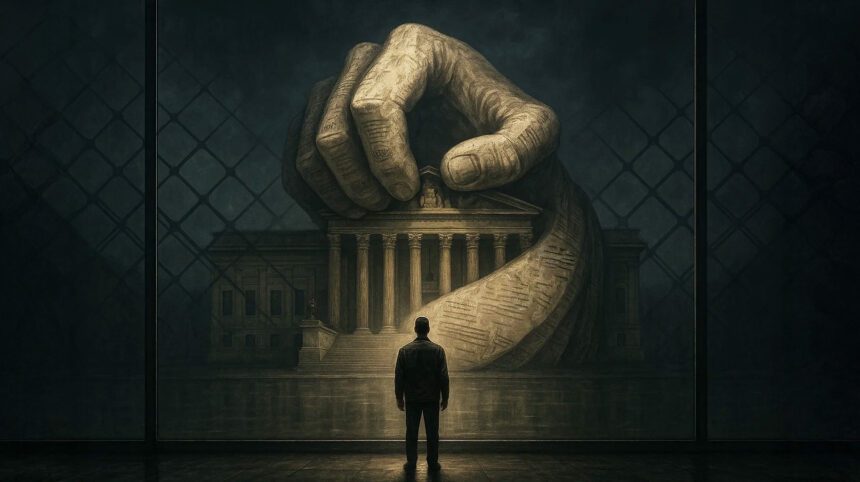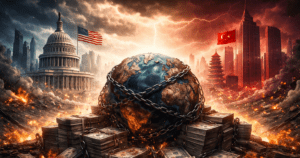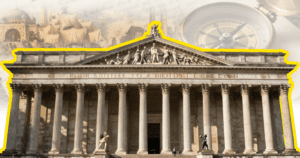Across continents and ideologies, one truth remains disturbingly constant: when power feels threatened, systems close ranks. From democracies to dictatorships, from parliaments to politburos, institutions built to serve the people often end up defending themselves even at the cost of justice, truth, and trust. The promise of governance is simple: protect citizens, ensure fairness, and deliver justice. Yet time and again, the machinery of power proves more interested in preserving its own image than upholding those ideals.
In democracies, this self-preservation often appears in bureaucratic delays, selective enforcement, and legal immunity. In authoritarian states, it takes the form of censorship, repression, and propaganda all cloaked in the language of “stability,” “national security,” or “public order.” Whether in the bustling streets of Delhi, the marbled halls of Washington, or the guarded corridors of Beijing and Moscow, ordinary citizens face a system that reflexively shields itself when questioned. The message is implicit: institutions may serve the people, but they will protect themselves first.
At its heart, every system is designed to ensure continuity. But that instinct, when unchecked, becomes dangerous. When accountability threatens authority, the system behaves like a living organism, shielding, silencing, and suppressing to ensure survival. Bureaucratic cultures value order and procedure above truth; authoritarian regimes equate dissent with danger. In both, the outcome is the same: the system’s reputation becomes more sacred than the citizen’s right to justice.
The mechanics of this self-protection are visible everywhere. Legal immunities allow officials to evade prosecution, while opaque “internal inquiries” replace independent investigations. Bureaucracy weaponizes delay; files disappear, witnesses tire, and cases drag on until the public forgets. Whistleblowers who dare expose corruption are punished, discredited, or silenced. The media, instead of holding power to account, is often co-opted into framing dissenters as “disgruntled,” “anti-national,” or “agents of foreign interests.” The institution that should serve as a safeguard becomes an accomplice in denial.
India offers multiple illustrations of this pattern. In several custodial death cases and corruption scandals, justice is delayed or diluted by procedural technicalities. High-profile figures enjoy endless appeals and political protection, while lower-level functionaries face quick punishment. The result is a perception that justice is not blind, but selective, swift for the powerless, sluggish for the powerful. In the United States, the doctrine of qualified immunity protects police officers from civil lawsuits unless misconduct is “clearly established.” Despite numerous cases of excessive force, few officers face conviction.
A law created to protect honest officials now shields abuse. Meanwhile, in the United Kingdom, the Post Office Horizon IT scandal revealed how a respected institution could destroy hundreds of innocent lives. Over 700 postmasters were wrongfully prosecuted for fraud due to a faulty computer system. For years, the organization refused to admit fault, defending its reputation while ordinary workers lost their livelihoods and dignity. Only after intense public and media pressure did the truth emerge.
Authoritarian regimes take this self-protection to extremes. In China, the Communist Party’s control over information and dissent is absolute. Whistleblowers like Dr. Li Wenliang, who warned about the early outbreak of COVID-19, were silenced for “spreading rumors.” The state’s instinct to suppress bad news outweighed the need to protect public health. Once the world learned the truth, Dr. Li was posthumously praised, a gesture that revealed the system’s hypocrisy more than its humility. In North Korea, the state itself has become the system. The Kim dynasty’s survival depends on fear, surveillance, and total obedience. Dissent is unthinkable; entire families are punished for one person’s “crime.”
Propaganda ensures that citizens see perfection even in poverty, and loyalty even in suffering. The system’s legitimacy rests not on trust, but on terror. In Russia, the story is more sophisticated but equally chilling. Under Vladimir Putin, the government has mastered the art of legalizing repression. Opposition figures are arrested, exiled, or mysteriously killed. Media outlets that question the official narrative are branded “foreign agents.” The 2022 invasion of Ukraine deepened this trend. Anyone who criticized the war risked imprisonment under laws against “discrediting the army.” In Russia, protecting the system has become synonymous with protecting the myth of infallible leadership.
The consequences of this self-preservation are profound. When systems protect themselves rather than the people, they erode the very foundation of public trust. Citizens lose faith in courts, elections, and media. In democracies, this cynicism fuels populism and polarization. In authoritarian states, it fosters silent resentment and underground defiance. Either way, society fractures. Once trust is broken, even legitimate actions by the state are met with disbelief and suspicion.
Power amplifies this instinct for silence. Governments often equate criticism with sabotage, and bureaucrats internalize that fear, prioritizing loyalty over legality. Institutions meant to check power, the judiciary, the press, and civil society face pressure, censorship, or co-option. When that happens, the system becomes a sealed loop: self-policing, self-justifying, and self-serving. Hannah Arendt once observed that “the most radical revolutionary becomes a conservative the day after the revolution.” Institutions are no different; once in power, they fear change.
The only antidote is transparency and accountability. Systems must welcome scrutiny, not fear it. Independent oversight, strong whistleblower protections, and public access to information are not threats; they are lifelines of democracy. Most importantly, citizens must stay vigilant. Systems don’t reform themselves; people force them to. Until that happens, justice will remain a performance rather than a promise.
















